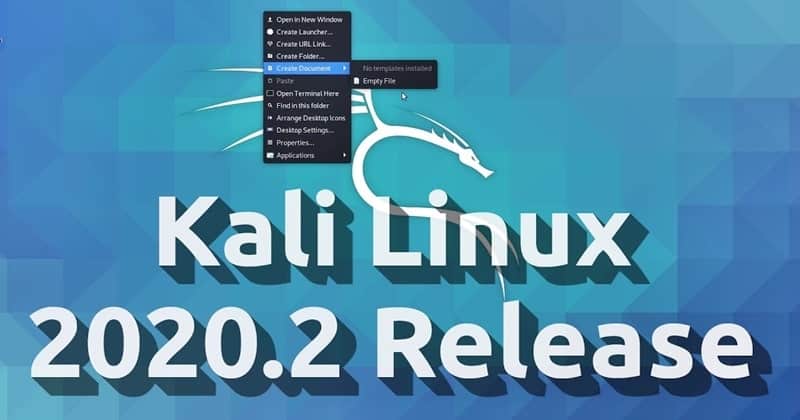After rolling out the Kali Linux version 2020.1 earlier this year, the Kali group now brings the second version of this with slight changes. The Kali Linux version 2020.2 will have renovated themes, new desktop environments, improvements for installers, icons, and more. Let’s check out.
New Features in Kali Linux 2020.2:-

PowerShell Procurement
If you’re using Microsoft’s Powershell framework, this update is good for you. Instead of installing the PowerShell from Kali’s network repository, PowerShell package now includes in the kali-Linux-large meta-package. This waives off the PowerShell being installed from the command line.
New Desktop Environment
After introducing dark and light themes for GNOME and Xfce desktop environments, Kali gets the same support for KDE Plasma desktop environments now. Further, the GNOME desktop is updated to its latest version 3.36, which has new features and a polished desktop environment. There are few visual improvements made to the login screen too in this new version.
Changes to Installer
Under this new version, Kali will no longer ship individual ISO images with different desktops environments. And lets us pick our desired desktop environments and meta-packages at the time of installation. While few have confused this to selecting everything in the installer, which takes much time to retrieve large-sized meta-packages. So the installer will no longer have the kali-Linux-everything option during installation and caches them from ISO images.
Besides these, there are improvements like upgrading to Python 3.8, new logos, Nexmon support for Kali NetHunter, ISO images for OpenPlus 3T, and default non-root policy for ARM images.
How to Download
Kali group has made it simple to get this new version. If you’re new and installing Kali Linux for the first time, download the ISO image of version 2020.2 from here. And if you’re already a user, upgrading to the new version is even simpler. Run the below command to upgrade your current package to the new system.
sudo apt update && sudo apt -y full-upgrade
Besides, you can even find ISO images for your ARM-based devices like Raspberry Pi, Pinebook, etc. If you wish to learn more about the release, visit the kali release page.



